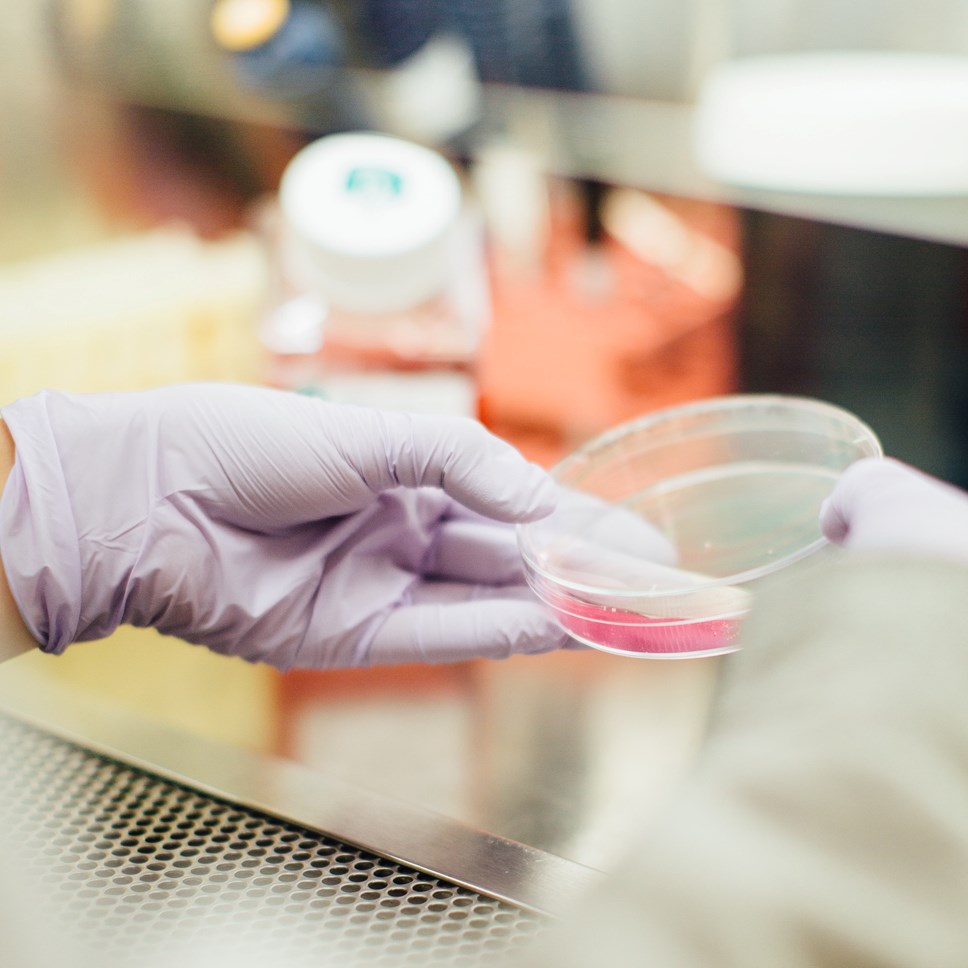
Welsh universities change lives with artificial intelligence and data science
Prifysgolion Cymru yn newid bywydau gyda deallusrwydd artiffisial a gwyddor data
Welsh Government investment in universities collaborating in data science and artificial intelligence is changing lives and helping Wales become an international leader in the field. As part of the Digital Strategy for Wales, £500,000 of funding is being shared between 22 innovative projects.
Wales Data Nation Accelerator (WDNA) is a collaboration between Cardiff, Swansea, Aberystwyth and Bangor universities to help Wales secure long-term data science and AI success.
As data science and AI become more widespread, university research teams are helping people across Wales by ensuring projects are being taken forward with industry so the outcomes can be adopted to improve economic returns, quality of life and sustainability. At the same time this will support creating a skilled and digitally competent workforce.
Professor Matthias Eberl and his team in the School of Medicine at Cardiff University will use AI to help prevent sepsis in abdominal surgery patients. Welsh Government funding has helped them work with partners to support their research.
Investing in this kind of research can help resolve challenges particularly affecting Wales. Aberystwyth University are supporting the agricultural sector by using AI to quickly identify parasites common in grazing livestock in Wales due to our climate.
Bangor University are supporting our environment by developing software tools to deploy radar technology along the Welsh coastline. This will provide marine renewable developers, ports and local authorities with valuable, real-time information about the waves and currents in our coastal waters. This research will help find better sites for renewable energy and improve safety.
Minister for Education and Welsh Language, Jeremy Miles said:
“Wales is home to fantastic higher education research. It is great to see our universities working together to make sure Wales is on the forefront of developments in data science and artificial intelligence.
“I am pleased that this funding has helped support projects with the power to improve people’s lives here in Wales and further afield.
“WDNA is an example of how a strong higher education sector can support all aspects of our lives and make sure we’re prepared for the future.”
Minister for Economy, Vaughan Gething said:
“Research, science, and technology has never been more important in terms of supporting solution-focussed projects and outcomes to tackle the major global problems of our time.
“I am confident this new funding will support our universities, working with industry partners, to use the very latest technological innovation in data science and artificial intelligence to do just that.
“In doing so, they will help boost the Welsh economy by helping to create the industries of the future, which will generate the new high-quality jobs we want to see across Wales.”
Professor Roger Whitaker, Pro Vice-Chancellor elect for Research, Innovation and Enterprise, at Cardiff University said:
“The world is changing at an unprecedented pace due to data science and artificial intelligence. This affects almost every sector in Wales. The Universities of Cardiff, Swansea, Bangor, and Aberystwyth have partnered to form the Wales Data Nation Accelerator (WDNA) project, an ambitious programme of research, innovation and training to support digital transformation.
“Welsh Government funding for short term ‘sprint’ projects has enabled partnership with organisations and companies to quickly demonstrate the power and potential of data and AI-driven technologies. This is supporting better health and wellbeing, improved public services, a competitive economy and a greener planet.”
Notes to editors
A member of Cardiff University’s research team is available to be interviewed, and opportunities to film in the lab are available on Thursday May 19, Friday May 20 and Monday May 23. Please contact alys.jones045@gov.wales to arrange.
Professor Roger Whitaker will be available to interview on WDNA on Friday May 20 at the Abacws building in Cardiff University. Please contact alys.jones045@gov.wales to arrange.
WDNA invites people with an interest in AI and data science to attend their event on May 26. This will be an opportunity to network and engage with the projects and see how this could shape Wales’ future. Deputy Minister for Climate Change, Lee Waters, will give a Ministerial address at the event. More information is available here: Digital transformation: Wales Data Nation Accelerator (WDNA) Tickets, Thu 26 May 2022 at 13:15 | Eventbrite
Case study information:
Artificial intelligence-guided diagnosis and prognosis of post-operative sepsis
This project focused on early detection and prediction of complications after bowel surgery, which can result in poor patient outcomes, including sepsis and reduced cancer survival.
The project team used novel bespoke software and state-of- the-art algorithms for data visualisation and statistical analysis, enabling them to determine diagnostic/prognostic biomarker signatures in drain fluid from the surgical site to predict inflammatory complications, leaking bowel contents and signs of sepsis.
Early risk prediction and rapid diagnosis of surgical site infections will enable clinicians to treat or perform surgical repairs before overt infection becomes established, reducing the likelihood of lifechanging complications such as sepsis in colorectal cancer patients, and other patients undergoing abdominal surgery. There is excellent potential for healthcare savings and for positive economic impacts across Wales and more widely.
Professor Matthias Eberl and his team in the School of Medicine at Cardiff University specialise in artificial intelligence-based solutions for diagnosis of infection when patients present with acute symptoms. External partners are Cardiff & Vale University Health Board (UHB), and Siemens Healthineers. Additional data sets were provided by a Swedish company, Olink.
Thanks to the funding, the academic team has been able to deepen its collaboration with Siemens Healthineers with regards to using data approaches to validate biomarker of tests and seeking to identify additional biomarkers that may merit development. This work has potential to attract funding from government and industry and contributes to consolidating Cardiff as a centre of excellence in precision medicine and data innovation.
Plans for prospective clinical studies are in development to help reduce demands on unplanned critical care admissions and improve cancer outcomes as a result of earlier/better diagnosis of post-operative complications.
